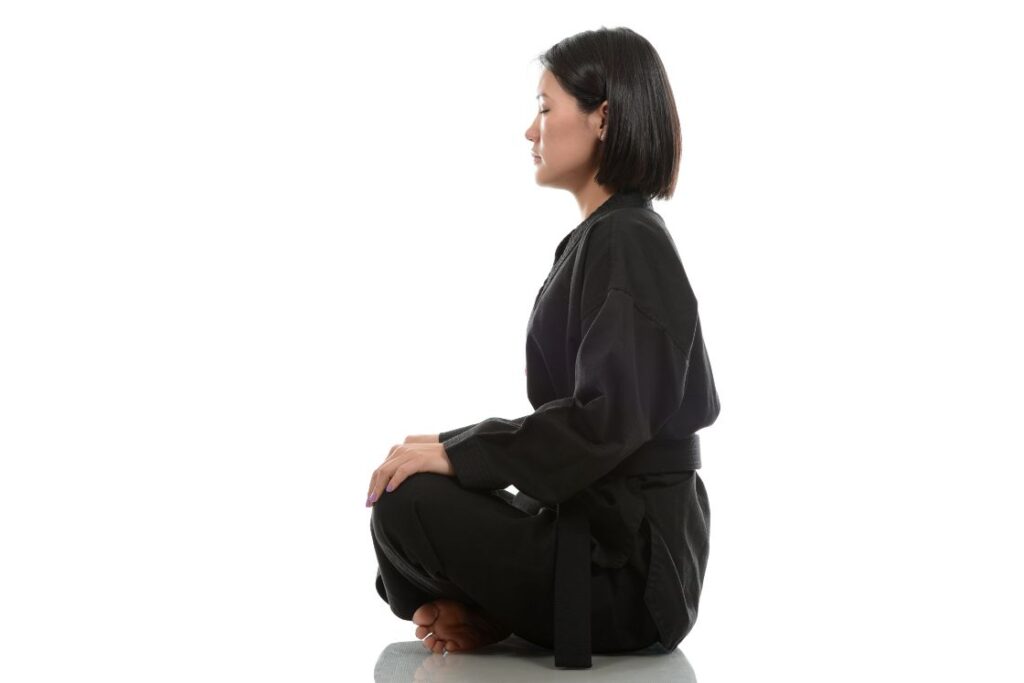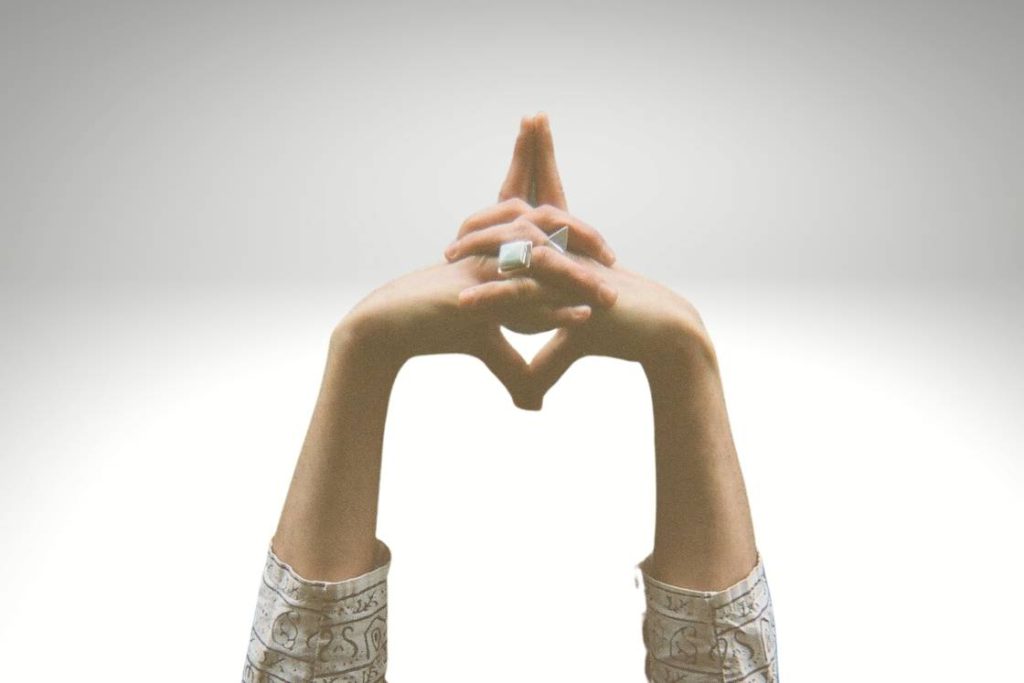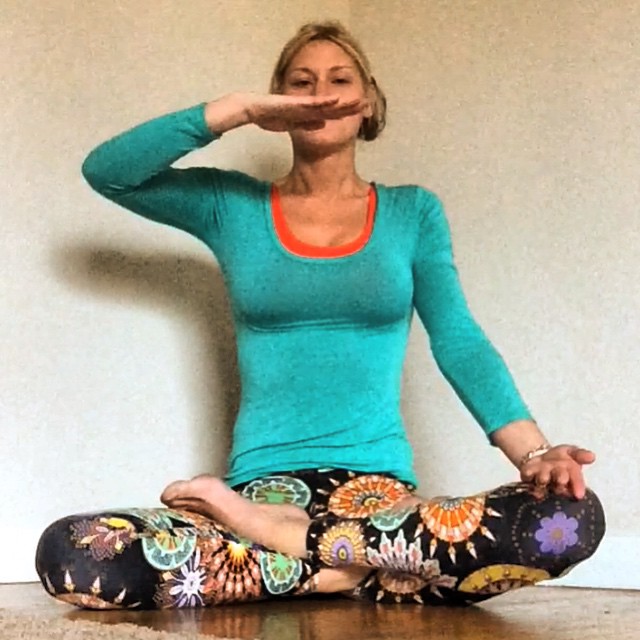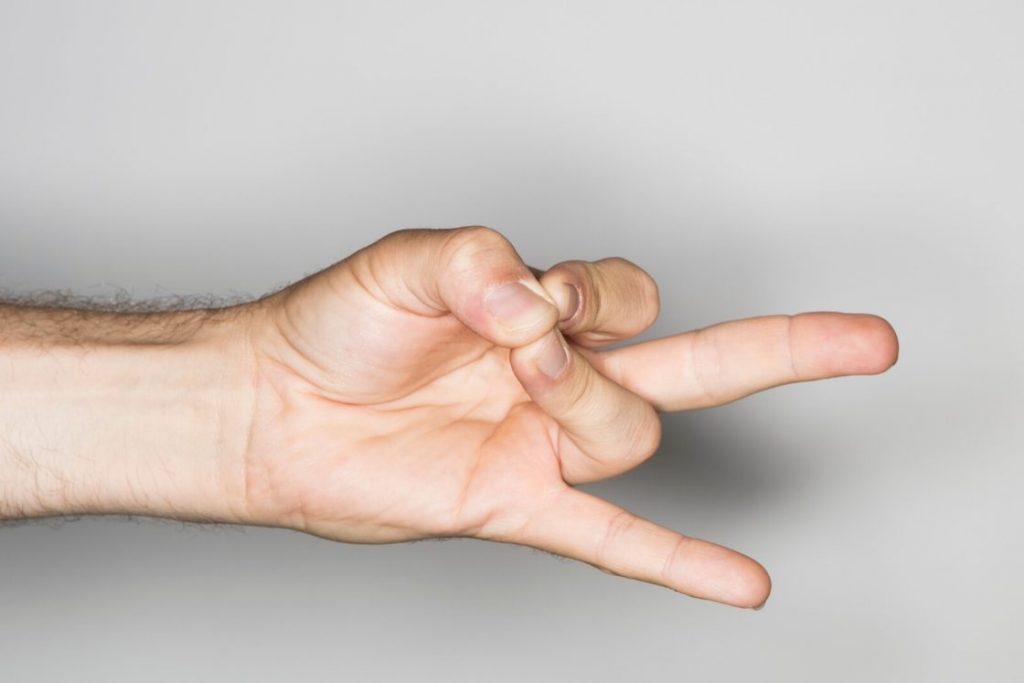
Whenever we are doing any work or even performing meditation, we tend to find that we easily get distracted. We often lose our focus which affects not only our mood but also our efficiency, productivity, and flow of the activity.
Having focus is something that you need to train your mind. And fortunately, yoga has the answer to help you improve your mental focus in a simple yet effective way in the form of mudras.
The hands’ ability to integrate and regulate one’s body through mudras serves as an integrating attribute. Mudras are utilized in yoga and meditation to help us focus more clearly and turn our attention within in addition to harmonizing the energy in the body.
The mudras actively aid in regulating and channelling the flow of energy throughout the body to raise consciousness, improve concentration, relieve tension, and promote general mental clarity.
In today’s article, we have listed 4 such mudras that can be beneficial in increasing brain power, memory and mental focus.
1. Hakini Mudra

An excellent hand gesture for the brain, hakini mudra rejuvenates and renews mental capacity. Hakini mudra encourages clearer thinking and memory improvement. Moreover, it is also known as the mudra of mind & wisdom as it is thought to increase brain power due to its strong relationship with the third eye chakra.
The energy of the two sides of the body is also united when the fingers of both hands are brought together, which improves brain synchronization between the right and left hemispheres.
Also Read: Meditation to Open The Third Eye Chakra
How to Practice Hakini Mudra?
- Begin with any comfortable seated posture such as Padmasana (Lotus Pose), Vajrasana (Thunderbolt Pose), or Sukhasana (Easy Pose).
- Bring your hands in front of your chest with both palms facing each other.
- Gently bring your hands together by joining them at your fingertips.
- Close your eyes and roll them up to set over the third eye chakra as a gaze.
- Place your tongue on the soft palate or the roof of the mouth (khechari mudra). Touch the palate when breathing in and release when breathing out.
When and How Long to do it?
You can practice Hakini Mudra at any time of the day, but it is best done in the morning or before starting any mental work. Hold the mudra minimum for 5 minutes. It can be held for 15 minutes in one sitting as you become comfortable.
- Additional tip: Focus your gaze on the tip of your nose while practising Hakini mudra to enhance concentration.
2. Uttarabodhi Mudra

Before beginning any work that seems difficult, using the uttarabodhi mudra is an excellent technique to quiet the anxious mind or ease the nerves.
The Uttarabodhi mudra enhances the brain’s creativity, problem-solving, and decision-making abilities. It is also thought to be excellent for boosting self-assurance and recognizing one’s inner Self, therefore it’s also known as a gesture of enlightenment. It helps one overcome their fear and encourages one to focus only on God.
How to Practice Uttarabodhi Mudra?
- Begin with any comfortable seated posture such as Padmasana (Lotus Pose), Vajrasana (Thunderbolt Pose), or Sukhasana (Easy Pose).
- Bring your hands in front of your chest with both palms facing each other.
- Join the palms and interlock your middle, ring, and little finger. The index finger should be touching each other at all times.
- The tips of the thumbs will be joined and pointed downwards. You can also place the left thumb over the right.
- Close your eyes and hold this mudra for a while.
When and How Long to do it?
- When to practice: Uttarabodhi mudra can be practised in the morning or evening.
- How long to hold: Hold the mudra for 5-10 minutes, or as long as you feel comfortable.
- Additional tip: Visualize the energy flowing from your fingers into your brain while practising Uttarabodhi mudra to enhance mental clarity.
3. Bhoochari Mudra

The bhoochari mudra gets its name “looking into emptiness” from the fact that, once your hand is brought down from the eye level, you are left staring at nothing. The mind becomes steady when one focuses on a single point in space, and the internal noise gradually starts to subside.
Bhoochari Mudra may additionally provide a grounding effect, making you feel more rooted and connected thanks to its affinity with the earth element and the sense of smell.
How to Practice Bhoochari Mudra?
- Begin with any comfortable seated posture such as Padmasana (Lotus Pose), Vajrasana (Thunderbolt Pose), or Sukhasana (Easy Pose).
- Keep your hands on your thighs with palms facing upwards and relax your body.
- You can form the Gyan mudra with your left hand.
- Bring your right hand up at level with your nose and turn the hand upside down so the palm is now facing down. Pull out your thumb and gently press it to your upper lip.
- Your right forearm should now be parallel to the ground.
- Aim your eyes towards the tip of the little finger and maintain it there for at least a minute without blinking. To make a clean look at the tip of your right little finger, you could slightly lift it.
- Lower your hand and rest it on your knees in Gyan mudra after a minute, but retain your focus fixed on the newly empty spot.
- Perform this mudra for a minimum of 5-8 minutes and gradually increase the time.
When and How Long to do it?
- When to practice: Bhoochari mudra can be practised at any time of the day but is especially beneficial when practised before or after studying or working.
- How long to hold: Hold the mudra for 5-10 minutes, or as long as you feel comfortable.
- Additional tip: Close your eyes and focus on your breath while practising Bhoochari mudra to enhance relaxation and mental focus.
4. Rudra Mudra

Rudra mudra assists in bolstering and improving the energy circulation to the brain. By the practice of this mudra, you become more focused and have better mental clarity as a result. You can support feelings of empowerment, sharpen your mind, and increase attention by using this mudra.
Rudra mudra can also be used to unlock your full potential and succeed in your goals.
How to Practice Rudra Mudra?
- Begin with any comfortable seated posture such as Padmasana (Lotus Pose), Vajrasana (Thunderbolt Pose), or Sukhasana (Easy Pose).
- Keep your hands on your thighs with palms facing upwards and relax your body.
- On both hands, join the tips of the index and ring the finger to the tip of the thumb.
- Close your eyes and hold this mudra for 10-15 minutes at a time.
When and How Long to do it?
- When to practice: Rudra mudra can be practised in the morning or evening.
- How long to hold: Hold the mudra for 5-10 minutes, or as long as you feel comfortable.
- Additional tip: Visualize a bright white light entering your body and filling your mind with clarity and focus while practising Rudra mudra.
Conclusion
While the above list of mudras is not exhaustive, they are effective when combined with meditation or pranayama. You can practice only one or a combination of both, based on the suitability and effectiveness you feel. You should also keep in mind that some mudras take time in showing their results so you should practice them regularly.
The post 4 Mudras to Increase Brain Power, Focus and Memory appeared first on Fitsri.